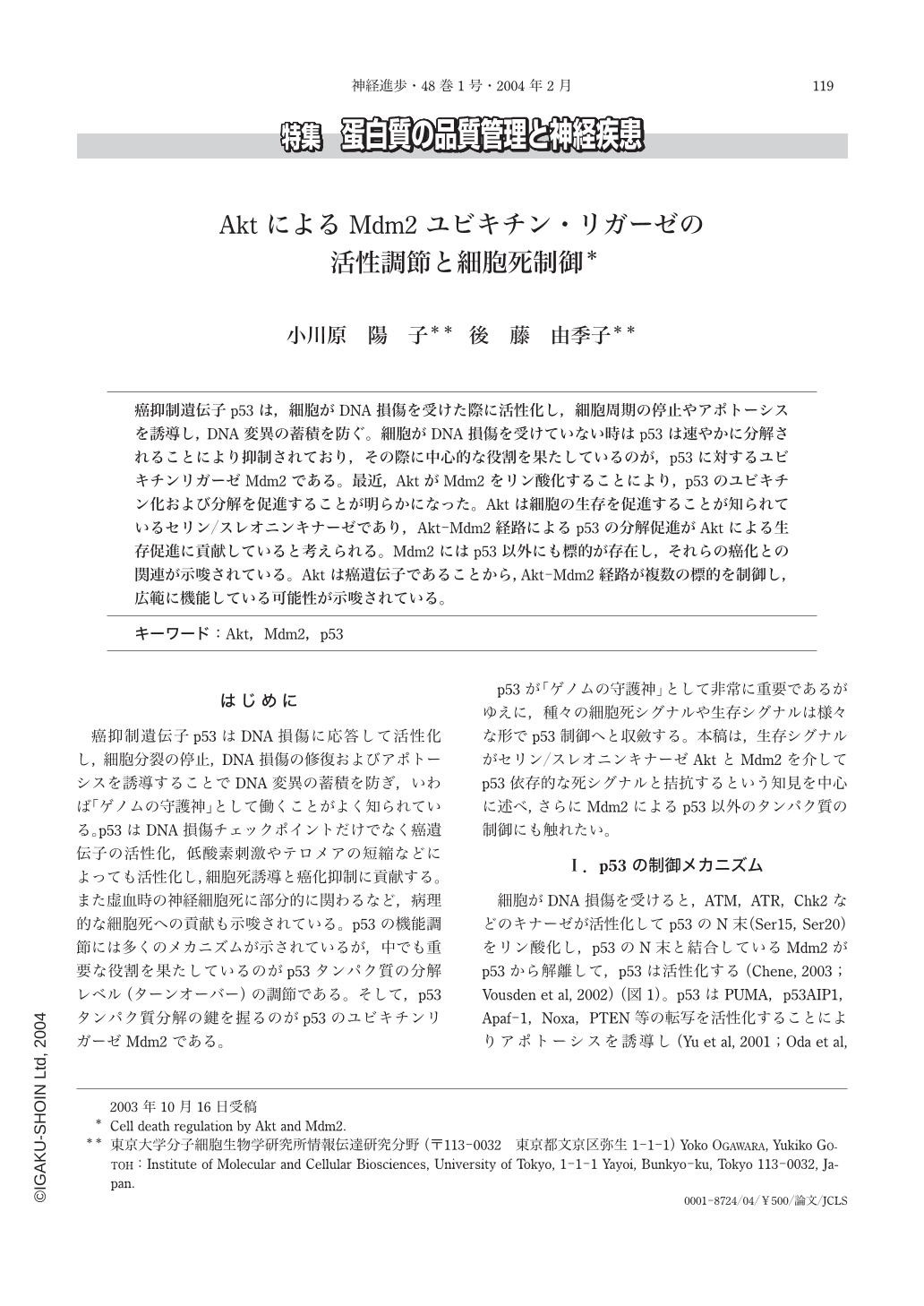Japanese
English
- 有料閲覧
- Abstract 文献概要
- 1ページ目 Look Inside
癌抑制遺伝子p53は,細胞がDNA損傷を受けた際に活性化し,細胞周期の停止やアポトーシスを誘導し,DNA変異の蓄積を防ぐ。細胞がDNA損傷を受けていない時はp53は速やかに分解されることにより抑制されており,その際に中心的な役割を果たしているのが,p53に対するユビキチンリガーゼMdm2である。最近,AktがMdm2をリン酸化することにより,p53のユビキチン化および分解を促進することが明らかになった。Aktは細胞の生存を促進することが知られているセリン/スレオニンキナーゼであり,Akt-Mdm2経路によるp53の分解促進がAktによる生存促進に貢献していると考えられる。Mdm2にはp53以外にも標的が存在し,それらの癌化との関連が示唆されている。Aktは癌遺伝子であることから,Akt-Mdm2経路が複数の標的を制御し,広範に機能している可能性が示唆されている。
The tumor suppressor p53 is activated in response to DNA damage, resulting in cell cycle arrest and apoptosis. These responses aim to prevent damaged cells from proliferating and passing mutations on to the next generations. Under normal cellular conditions, p53 is constantly degraded by Mdm2, an ubiquitin ligase for p53, and is therefore present at low levels. Our and other groups have recently shown that the serine threonine kinase Akt enhances the ubiquitination-promoting function of Mdm2 by phosphorylation, which results in reduction of p53 protein. Mdm2-mediated degradation of p53might contribute to the survival-promoting activity of Akt. We also discuss p53-independent targets of Mdm2.
(Received:October 16, 2003)

Copyright © 2004, Igaku-Shoin Ltd. All rights reserved.


